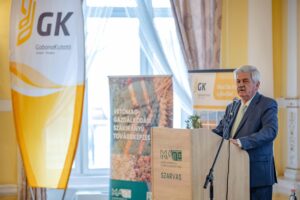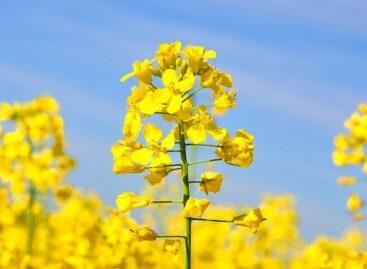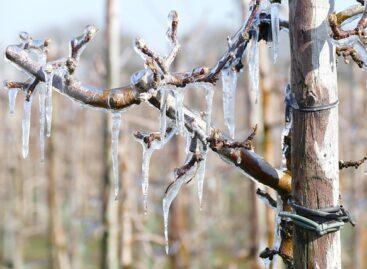The domestic seed sector is a national strategic issue
Domestic, high-quality seeds and propagation materials fundamentally contribute to the long-term sustainability of domestic agricultural production – said Sándor Farkas, Deputy Minister of Agriculture, at the opening of the 1st National Seed Management Conference in Szarvas on Thursday.

(Photo: AM/Tibor Vermes)
The Deputy Minister highlighted that the domestic seed sector provides outstanding performance on a global level, is a priority area of agriculture, and therefore holds enormous potential. The range of varieties preferred by producers will change in the future, which is why the demand for seeds may also change – he added. Farmers are increasingly placing emphasis on risk management and stabilizing yields, which is why the demand for varieties that adapt well to different production environments and changing climatic conditions may increase. In addition, the rise of precision farming could further strengthen the demand for high-quality domestic seeds, he underlined.
Sándor Farkas emphasized that support for more sustainable agricultural practices is expected within the framework of the Common Agricultural Policy, which gives priority to locally adapted varieties in seeds
He added that the Ministry of Agriculture is committed to supporting the domestic seed sector, therefore, within the framework of the CAP, actors in the sector can access funds based on a special call for applications. Sándor Farkas explained that a tender is currently being prepared, which, in addition to developing the storage, drying and cleaning capacities of arable crops, provides support for the establishment of seed production plants and the technological modernization of existing ones. The aim of the tender is to create the conditions for seed production, he added. European agriculture must meet the needs of a growing population, while ensuring food security, and therefore continuous innovation in plant breeding and crop production is needed. In addition, EU and domestic GMO regulations, as well as seed production and distribution standards, may change in the coming years, which may also affect the availability and pricing of seeds. Plant breeding based on research and genetic development is of paramount importance to meet these needs, he added.
AM
Related news
ENAR data reconciliation for cattle, sheep and goat, pig and poultry farmers is underway until the end of March
🎧 Hallgasd a cikket: Lejátszás Szünet Folytatás Leállítás Nyelv: Auto…
Read more >AM: Ministry of Agriculture pays special attention to supporting the horticultural sector
🎧 Hallgasd a cikket: Lejátszás Szünet Folytatás Leállítás Nyelv: Auto…
Read more >Related news
40 secure jobs, sustainable solutions – new BURGER KING® in Csepel
🎧 Hallgasd a cikket: Lejátszás Szünet Folytatás Leállítás Nyelv: Auto…
Read more >Hétéves növekedési stratégiát jelentett be az Auchan
🎧 Hallgasd a cikket: Lejátszás Szünet Folytatás Leállítás Nyelv: Auto…
Read more >









